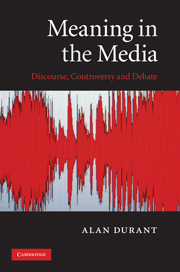Book contents
- Frontmatter
- Contents
- Acknowledgements
- Introduction
- Part I Communication failure and interpretive conflict
- Part II Making sense of ‘meaning’
- Part III Verbal disputes and approaches to resolving them
- 7 Meaning as a knockout competition
- 8 Standards of interpretation
- Part IV Analysing disputes in different fields of law and regulation
- Part V Conclusion
- References
- Index
7 - Meaning as a knockout competition
Published online by Cambridge University Press: 05 June 2012
- Frontmatter
- Contents
- Acknowledgements
- Introduction
- Part I Communication failure and interpretive conflict
- Part II Making sense of ‘meaning’
- Part III Verbal disputes and approaches to resolving them
- 7 Meaning as a knockout competition
- 8 Standards of interpretation
- Part IV Analysing disputes in different fields of law and regulation
- Part V Conclusion
- References
- Index
Summary
Introduction
In this chapter and in Chapter 8, I consider how disputes over meaning are handled, as disputes: what roles are played by the parties; how the parties engage with one another; and what standards are appealed to in efforts made by third parties to arrive at decisions. This chapter begins with ideas of ‘argument’ and develops an account of how disputes over meaning often combine perceived cooperation with underlying conflict of intention and interest. Taking up the theme of time from Chapter 6, I also show how media law and regulation procedures create distinctive, ‘after-the-fact’ adjudicative speech events, even as they seek to evaluate interpretations that, it is claimed, were ascribed ‘at the time’. Overall, I show how complainant and defendant work over earlier versions of meaning in order to accentuate their own claims. In doing so, they pull meaning in different directions. Meanwhile, a judge, jury or adjudicating body seeks to decide ‘the meaning’.
Fighting over meaning
In the red corner, complainants and accusers (often individuals, but they can also be companies or institutions): ‘widespread and systematic deception of millions of viewers’; ‘a farrago of half-truths’; ‘a grotesque manipulation of the facts’; ‘a pyramid of piffle’; ‘a pile of claptrap’; ‘a tissue of serious factual inaccuracies’; ‘simply vicious vapourings and a vile tissue of lies’; ‘a piece of window-dressing designed to deceive’; ‘a view that cannot have been honestly held’; ‘flagrantly outrageous remarks’; ‘a series of half-truths, distortions and what appear to some as not so much amnesia as lies’.
- Type
- Chapter
- Information
- Meaning in the MediaDiscourse, Controversy and Debate, pp. 113 - 127Publisher: Cambridge University PressPrint publication year: 2010



